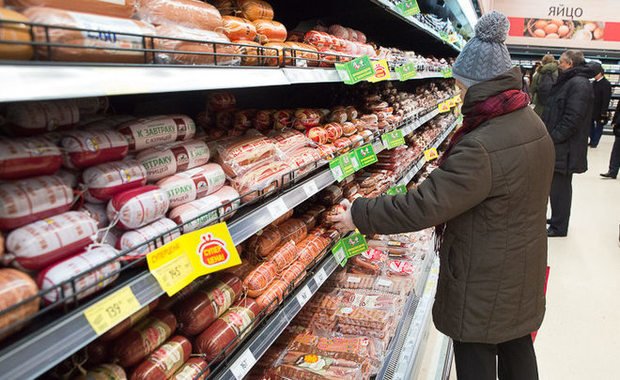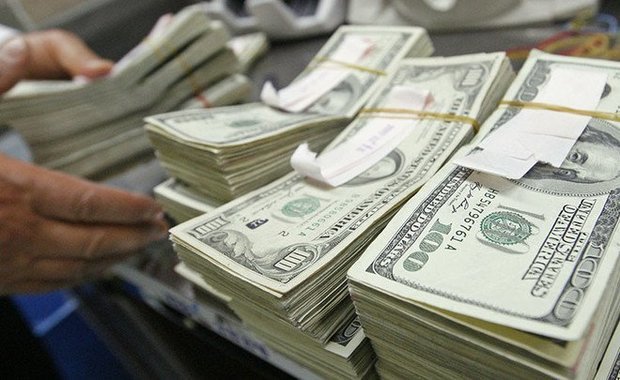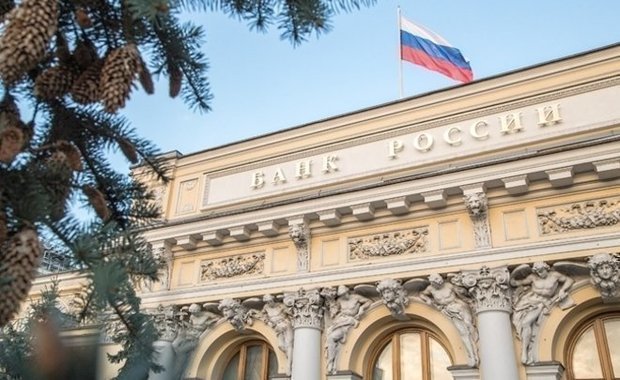''The next recession in the world economy might hit Russia more heavily than the crisis in 2008''
Economic results and forecasts by Sergey Khestanov. Part 1
A recession in the world economy will be added to domestic Russian problems in 2019. We don't when a new crisis begins. But it's not far according to many signs, thinks economist Sergey Khestanov. In an interview with Realnoe Vremya, the expert tells why demand reduces in Russia, when the Russian economy began to scotch, why the Great Depression became Great and how underestimation of the ruble influences the population's wellbeing and so on.
''The economy began to stagnate as early as 2012. Sanctions' influence is exaggerated''
Mr Khestanov, how can you characterise the state our economy has been in 2018?
Academically speaking, the economy had low economic growth paces. On the one hand, it's not a recession yet, not a fall in the economy. On the other hand, the paces we see, that's to say, 1,5%, are obviously not enough to provide the citizens with a good level of life and dynamics of development of the economy. Of course, nothing terrible is happening in the economy. But the situation is far from what's desired.
Are the reasons for such a state of the economy the same or have appeared some new?
When people analyse reasons for this state, they very often focus on sanctions and geopolitics. And it's fine. But looking deeper, the beginning of our economy's stagnation dates back to as early as 2012. There weren't any sanctions, any geopolitics then, but the economy of Russia slowed down. It happened because that economic model we grew up with since the dissolution of the USSR (with defaults and crises, of course) had run out by about 2012. This model was called recovery and commodity growth, that's to say, the institutes absent in the USSR recovered, the same private property, wholesale and retail trade increased, the economy grew thanks to oil sale. But this era had ended by 2012. The crisis linked with a fall in oil prices, which haven't bounced back yet, was added to it.
Of course, sanctions also make their negative contribution. But, on the other hand, their influence is exaggerated. As there aren't any restrictions to sell Russian hydrocarbons, sanctions don't affect us much. Yes, we sell oil, but the real sector hardly grows.

''Of course, sanctions also make their negative contribution. But, on the other hand, their influence is exaggerated. As there aren't any restrictions to sell Russian hydrocarbons, sanctions don't affect us much.'' Photo: Maksim Platonov
Why hasn't the country's economic development strategy been adopted yet? Vladimir Putin promised to present some programmes in this respect in the autumn, but he didn't in the end. We just heard about an intention to launch a programme of infrastructural projects. There isn't any strategy, why?
A strategy hasn't been presented probably because the Kremlin and the government don't have a clear understanding of what to do. Infrastructural projects are an important thing, and nobody never opposes them. But infrastructural projects in itself will do no good without something else. Yes, roads will be a bit better, there will be fewer bumps on them. But it's at least naïve to say our life will suddenly improve after that. Of course, nobody argues that we have big problems with infrastructure. But it's necessary to deal with other things about which everybody knows.
First of all, it's necessary to reduce the administrative markup. Moreover, such a markup is not only corruption but also excessive regulation. Here's a real-life example: my good acquaintance has a dacha outside Moscow. He paid 67,000 rubles for permission documentation only to connect the furnace from the gas pipe, which is 12 metres far from the furnace! And his acquaintances say he was lucky – they had to pay much more. And here the sense is that this markup is quite legal stuff: it turns out that only one organisation grants such permission in the region my acquaintance lives in. No money – no service!
''Inflows from export reduced, and demand shrank throughout the economic hierarchy''
Let's say in one of the surveys entrepreneurs complained about the tax burden, the absence of demand more than the markup…
This is all intertwined. The same excessive regulation requires content, which generates high taxation. The circle is vicious, and the impossibility to overcome the administrative markup legally creates corruption. All these things are intertwined and interlaced. As for low demand, it's also correct – the governmentalisation degree of the Russian economy is estimated at about 70% (we are almost back to the USSR with this indicator). As incomes of the federal budget are divided into three parts (one-third is inflows from export, two-thirds is VAT, moreover, a lion's share is paid from imported goods, and the remaining one-third is the rest). When VAT's level decreased due to a fall in oil prices, it made demand throughout the economic hierarchy shrink – federal and regional programmes were cut, enterprises reduced their costs, and citizens reduced their costs. This is why it's no surprise entrepreneurs complain about it. Moreover, retailers have recently claimed that goods without discounts are sold slowly – offers account for a lion's share of sales. This means the people have tightened their belt and wait for discounts. The roots of these problems are that inflows from export reduced, which are distributed to the whole community through the budget in a complicated way.

''Retailers have recently claimed that goods without discounts are sold slowly – offers account for a lion's share of sales. This means the people have tightened their belt and wait for discounts.'' Photo: Maksim Platonov
Does it mean that infrastructural projects aren't the economy's growth driver, in fact?
Yes. Such projects helped in the USA once. But they don't help us at all. Look, the access to infrastructural projects in the USA is obtained through real tenders, almost everyone can take part in them. As a result, having financed the construction of a highway, the state helps different firms this way – from crushed stone and asphalt suppliers to those who entertain workers, organise their meal and so on. Most part of such projects in Russia is implemented by businesspeople who are linked with those who make a decision in some projects. And as a result, money from such projects almost doesn't reach the economy. Only the businessperson who has access to it earns from such projects. And the circle of this business is very narrow.
''We're approaching the next economic cycle''
How much does the country need foreign investments?
Foreign investors are still invited to Russia to certain areas. But we shouldn't exaggerate the role of foreign investors. Foreigners consider only the business they understand, they can measure. And they look at their judicial protection and so on. This is why, of course, we have big foreign companies, but they already occupy a niche that's interesting for them. We can't wait for a big flow because we aren't big as an outlet and we're already full – the same car assembly is already in surplus in Russia, and a part of car making enterprises, for instance, from the car cluster in Kaluga have to sell a part of the cars abroad because it's impossible to sell them in Russia due to the economic slowdown. Of course, your KAMAZ feels better in this respect because it's a more specific niche – utility companies and so on purchase their cars. But they don't have the potential for big growth, either. So what, should we offer investors some favourable conditions like in Taiwan and make iPhone on a contract basis? We have neither technologies nor workers for it. And it doesn't become cheaper to make something in Russia year after year. For this reason, it's not very correct to focus on a foreign investor.
Does it turn out that the economy should count on domestic investments? But where? In oil and gas?
Yes, domestic. But oil doesn't make big investments now. Neither does it want to attract investors because it doesn't see big potential in these investments. And such a company as Lukoil has had all recent projects abroad. Russia already doesn't have big oil fields that could be explored – the majority of what could be discovered have already been discovered. It's very expensive to explore the same Arctic, and it's not possible to compete with the Persian Gulf oil, including if the price reduces in the future.

''Unfortunately, science can't say when a new crisis begins – in 2020 or 2021. But we aren't far from it according to many-many signs. In these conditions, new potential investors, those who would like to invest their money prefer to occupy a wait-and-see position or purchase a currency.'' Photo: ktovkurse.com
What does an investor think? As an investor, I think about two things: how much I can earn and what risks await me because there is no business without risks, in general. Nowadays there aren't any investment opportunities with good earnings and low risks in Russia. All business niches, which are based on the end consumer, are already occupied. In addition, there is a big competition for the consumer in the niches. And if there is competition, it means low profitability. This is why the main problem is that there is nothing to invest in – there aren't suitable facilities. The Federal Statistics Service registered a low investment activity level. Risk and profitability are always weighed up: if risks are high, and income in a sphere isn't seen, nobody will invest here. It's just better to create a bank account and get 8% for sure.
Such a situation in investment is highly likely to maintain next year too – a recession in the world economy will be added to our domestic problems as well. As we know, the world economy is cyclical, its average-term cycle is 7-12 years. And we're approaching the next economic cycle. Unfortunately, science can't say when a new crisis begins – in 2020 or 2021. But we aren't far from it according to many-many signs. In these conditions, new potential investors, those who would like to invest their money prefer to occupy a wait-and-see position or purchase a currency.
''The other side of such a policy is in the reduction of the population's wellbeing''
Will the next crisis hit Russia heavily?
Almost like the crisis in 2008. Perhaps, there will be a bit worse because there wasn't a big recession in the economy of China in 2008 – everything was good there. But will such a picture remain for this country during the next crisis? I'm not sure. China is very important for Russia, as it influences feedstock prices very much. In case of a crisis, the PRC can unlikely stay on the sidelines because there are two groups of significant problems – partly it's big domestic debts and partly US duty problems, which is a very significant problem for China at the moment. A pause has been taken in duties. But I think the problem will aggravate in early or late February. And nobody knows how it will be solved.
Does it depend on President Trump's behavior?
Trumps isn't the point. Trump is no picnic, of course. But the problem is deeper – China has had a negative trade balance with the USA for almost 20 years (since the economy began to grow). This means the USA buys Chinese goods for $300bn more than it sells its goods to China. And it gradually turned into a problem because it's not possible to live with a negative trade balance for long. How to solve the problem? Yes, duties might be raised, but it causes a return rise in duties. And science perfectly knows how a war of duties ends. One of the reasons why the Great Depression became Great is because all imposed duties against all, and this did no good. So Chinese duties for the USA are a dead-end road beforehand because not so many US goods are sold in China. And the latter will suffer more, which will mean lasting stagnation of its economy. China certainly won't like it, as the quality of life isn't that high there. There is another option for the PRC – to buy some US goods. But which one? The Americans have little to offer that China needs. And it's likely to be oil and gas. Let's wait and see if these countries come to an agreement or not.

''Beforehand, when oil price went up, the Central Bank began to actively purchase the currency. Consequently, the ruble was seriously underestimated, which the serious fall in oil prices have shown.'' Photo: cbr.ru
This year's specifics is that the ruble rate behaves in a different way when oil prices fall. No doubt, it's the Central Bank's job. But what was the sense when the barrel fell from $86 to $54 the Russian currency cheapened just a bit, from 65 to 65 rubles per dollar?
It's an interesting manoeuvre where the ruble looks too cheap even with the current oil price – beforehand, when oil price went up, the Central Bank began to actively purchase the currency. Consequently, the ruble was seriously underestimated, which the serious fall in oil prices have shown. But it's profitable for the budget. And this is why it's in surplus, it's profitable to create a budget reserve and pay off the country's external debt – it has reached record lows in the last months. But the other side of such a policy is in the reduction of the population's wellbeing and indirectly in inflation acceleration. As the budget is in surplus, nothing impedes from maintaining such a state for quite long – approximately till oil goes down to some $41 per barrel, that's to say, the oil price that's calculated in the budget and considered stable.
To be continued